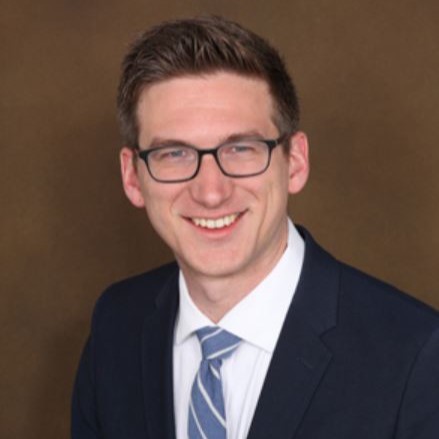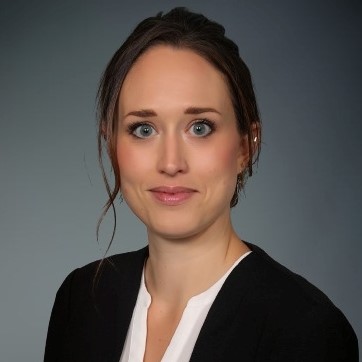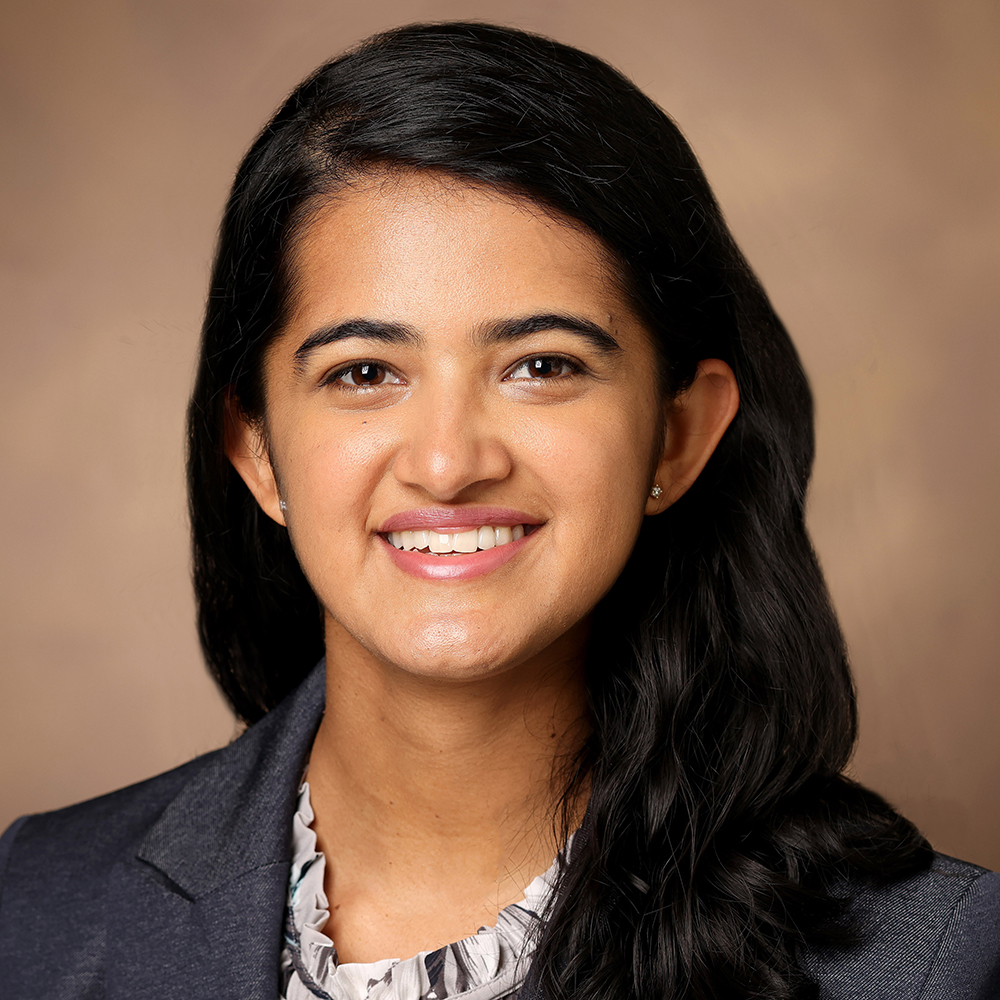Health Innovations Scholar Program
The Health Innovations Scholar Program (HISP) is an intensive summer training program for medical students who seek to become future leaders of innovative and transformative change in American healthcare. We teach a practice of health systems improvement that emphasizes human-centered design. Our fundamental belief is that solving healthcare's complex problems requires a systematic approach that includes skillful measurement, critical thinking, and above all, empathy for both patients and practitioners alike.
Using tools from LEAN, design thinking, and change management, HISP students will analyze an actual health systems problem, identify targets for improvement, and work with stakeholders to enact change. HISP projects culminate in a presentation to high-level stakeholders and all have led to meaningful improvements and sustainable initiatives that improve care delivery at the University of Colorado!
HISP Program Details
HISP is an intensive 4-week summer experience for medical students in any year, which accelerates mastery of the skills necessary to be a strong physician leader and healthcare innovator. We select students via a competitive application process. Program participants will receive a stipend for their time. All program activities are located on the University of Colorado Anschutz Medical Campus in Aurora, CO. Please note that this program is open to U.S. residents only.
HISP aims to produce leaders who are prepared to reinvent the healthcare system. Utilizing LEAN, design thinking, and change management core principles and practices, our program creates a cadre of future leaders who can transform the quality, safety, efficiency, and patient experience in healthcare.
Through classroom learning, hands-on projects, intensive mentorship, and shadowing in the hospital, program graduates will learn to:
- Identify their own leadership style and examine different effective leadership strategies that drive change within complex systems
- Explore effective models for creating and developing teams in the healthcare setting
- Apply core quality and process improvement principles to design projects that lead to clinical system improvements
- Utilize design thinking to innovate new models of care centered on meeting patients' and providers' needs
- Reflect on the strengths and weaknesses of our current healthcare system for both patients and those who care for them
Past Project Examples
Students who have participated in HISP from 2013—2024 have engaged in experiential project work across multiple clinical settings. Examples of these past projects include:
- Improving the quality, efficiency, and patient-centeredness of the discharge process for hospital medicine patients
- Enhancing the processes for patients transferred from other hospitals
- Creating novel patient-centered care plans for patients with sickle cell disease
- Process mapping the patient experience within a surgical hand clinic to identify areas of high variability and low value
2026 Dates
Our 2026 Program dates will be July 6th-31st. HISP 2026 participants will each receive a $3,000 stipend.
2026 Application Deadline
Applications are open from December 1st, 2025 - January 12th, 2026.
How to Apply
1. Please email the following documents to Kelsey Keil at [email protected] using the subject line "HISP 2026 Application - [Your Full Name]" Please email all required documents together. Do not send documents in separate emails.
- Your most recent resume or CV
- A personal essay describing why you are interested in joining the Health Innovations Scholars Program. Responses should include prior experiences (if relevant), what you hope to learn from HISP, and how you envision applying this material to your future career as a leader who will improve systems of care delivery through innovation. (300-500 words)
- Please review the following nine team roles and briefly describe which one or two roles you think best fit your team membership style, including examples of why you chose the role(s) you did. We seek to create a balanced team where each of these roles is represented, so there is a preference for diversity of roles rather than any one particular role. Use this prompt to show us how your unique talents manifest in a team. (300 word maximum)
2. Complete the online application form
If you have questions, please email [email protected]. Health Innovations Scholars Program candidates will be selected based on their interest in systems improvement and innovation, potential to become a physician leader, and evidence of strong interpersonal skills. While prior experience in leadership, quality improvement, and/or design thinking is beneficial, it isn't required.
Past HISP Project Examples
Applying FAQs
Is this program open to all medical students, regardless of type or year of medical school?
We accept MD and DO medical students who have not yet graduated from a U.S. medical school and who have the availability to join us on campus at the University of Colorado for the entirety of the program. While we are deeply appreciative of the skills and backgrounds of international students, we are unable to sponsor international visas due to logistical complexities; students attending international medical schools but who have USA-based addresses are more than welcome to apply. Please feel free to contact us if you have questions or concerns about your eligibility.
What kind of students do you look for or typically accept?
Generally, no two students are alike. Each year, we look for a well-rounded group of scholars who have strong interpersonal skills, will be successful in a team setting and have interest in quality improvement, leadership training, and systems redesign. While prior experience in leadership, quality improvement, and/or design thinking is beneficial, it isn't required.
What does the application process look like? When will I be notified of acceptance or denial into the program?
After you apply, you will receive an email notification that we received your application. You can apply at any time within the application window, but we do not review applications until the submission portal has closed. We will make every attempt to review all applications by January 23rd, 2026. Our finalists will be contacted no later than January 30th to schedule two 30-minute interviews with HISP faculty. All applicants, regardless of whether invited to interview, will be notified about their application status. We will make our final decisions by February 27th.
Would it be possible to speak with a former student before applying?
Sure! If you email [email protected], the program manager will attempt to connect you with a past scholar.
Program Details FAQs
What kind of day-to-day work will I be doing in the program?
Mornings are typically dedicated to didactics and workshops while afternoons are saved for more independent project work. We also incorporate a partial flipped classroom, and you will occasionally be asked to watch brief didactics the day prior to a morning workshop session. During the last two weeks of HISP, most of your day-to-day time will be focused on gathering data, analysis, and putting together the final presentation. We also coordinate social events throughout the program and will have several "lunch and learn" sessions along with three tailored clinical shadowing sessions. We have designed HISP to appeal to adult learners. Our goal is to provide you with core content, but to do so in a way which remains mostly interactive and experiential.
How is the project topic chosen for the year? Is it faculty-driven or does the cohort for that year get to choose?
The project topic is chosen by HISP faculty and is based on current hospital priorities. With only one month, we've found the most successful projects require existing stakeholder engagement and data streams to be successful. However, this doesn't mean that students don't play a major role in shaping the project! While the topic will already be chosen, HISP students choose how they want to approach subsequent work. Process mapping, root cause analyses, journey and empathy mapping, data analysis, and design thinking approaches to solutions will all be determined and led by the HISP students.
What are the deliverables from the month?
HISP students will present their project work, including their key finding and recommendations for improvement, to stakeholders at the end of the month. The findings and improvement recommendations will then be discussed by leadership, and often lead to tangible and meaningful system improvements in the subsequent months.
Do these projects publish any papers/posters?
Yes. Students are expected to participate in mentored scholarly activities after the conclusion of the program. Most students choose to present their projects as posters at conferences, including the annual Society of Hospital Medicine and Society of General Internal Medicine conferences.
Who is in charge of leading and teaching HISP?
Kelsey Keil is the HISP program manager. Drs. Sam Porter, Michelle Knees, and Anusha Raja are hospitalists, and all have prior training in quality improvement, patient safety, and design thinking. They also have pragmatic experience in implementing hospital-based improvement projects. Drs. Porter, Knees, and Raja will serve as the main lecturers and mentors for your work, but occasional guest lectures will help teach, as well.
How many students are accepted to HISP?
We typically accept 6 to 8 students depending on the scope of the project. We intentionally choose to work with a small group to create a smaller and more personalized learning and project work atmosphere.
If I am accepted to the program, do I need to attend the program the entire month?
Yes. Unless previously arranged with the HISP team, you are required to participate daily in all activities (M-F; 9-5pm). There is no mandatory evening or weekend work, but there might be occasional optional social events during these times. Students who do not attend or participate with the group to complete the project will not receive their stipend at the end of the program.
Do students receive a stipend?
Students receive a $3,000 stipend at the end of the program, assuming they participated fully. They can use this stipend however they would like. Unfortunately, we can't provide further reimbursement for additional travel costs, housing, or meals beyond the $3,000 stipend. Several lunches will be provided, but most meals will need to be arranged separately by the student.
What is reimbursed to me for this program?
Unfortunately, we do not reimburse you for travel costs to/from the program, your housing, or your meals. If you choose to take public transportation throughout the program, we do not reimburse those costs or reimburse for gas used to get to/from campus. We do provide you with about 4-5 meals during your time here and a final celebration dinner.
If I am accepted to the program, do you provide housing and transportation for the program?
No, housing and transportation are not provided. It is the student’s responsibility to set up and find a place to live for the month. Some HISP students have even found places together to rent as a group. We recommend checking websites such as HomeAway, Airbnb, Rotatingroom.com, Roomster, Zillow, and Craigslist. Transportation is also not provided. Some students rent rooms close to campus and walk or bike, while others rely on rideshare apps or bring their own car. While Denver and Aurora do have public transportation options, we're unfortunately still behind many other major cities and finding convenient options can be challenging. You can check the RTD and lightrail maps for further information.
If I am accepted to the program, do you have recommendations on where to live near the campus?
Although the campus is in Aurora, you may want to focus your search in the Denver metropolitan area if you would like more social options. Denver metro is approximately 20-30 minutes from campus so keep in mind it generally requires a car/bus/lightrail for transportation. Some of our past students have lived in Congress Park, Capitol Hill, RiNo, Lowry, and Central Park.
Other questions?
Please don't hesitate to email us at [email protected] with any further questions at any point during the application or interview process.

Sam Porter, MD
Director
Sam Porter is the Director of HISP. He is an Assistant Professor in the Division of Hospital Medicine at the University of Colorado and serves as the Director of Service Line Quality for Hospital Medicine as well as the Director of the Medical Leadership Pathway for the Internal Medicine Residency.

Michelle Knees, DO
Associate Director
Michelle Knees, DO completed internal medicine residency training, with a focus on hospital systems and health equity, at the University of Colorado in 2021. She spent an additional year as Chief Resident of Quality and Patient Safety at the Rocky Mountain Regional VA, where she helped lead residency and hospital-wide quality and patient safety initiatives. She now works for the Division of Hospital Medicine at the University of Colorado as an academic hospitalist. She also works with the Institute for Healthcare Quality, Safety, and Efficiency to coach multidisciplinary quality and process improvement projects.

Anusha Raja, MD
Associate Director
Dr. Anusha Raja is a board-certified Internal Medicine physician. She has worked with multidisciplinary teams to improve clinical practices for patients through her work in the Quality Improvement and Physician Leadership Distinction at Yale New Haven Hospital. Dr. Raja also serves as VP of Operations for Playbl, a health tech startup that aims to prevent risky health behaviors in youth through evidence-based videogames. She is excited to draw on her background in health innovation and design thinking to teach quality improvement practices. In her spare time, she enjoys exploring the beautiful state of Colorado with her baby and husband.